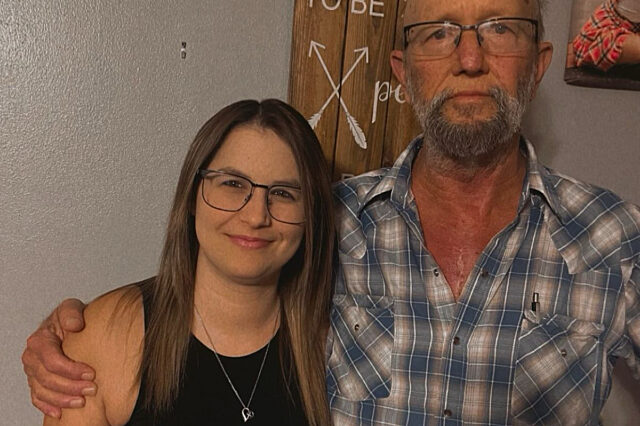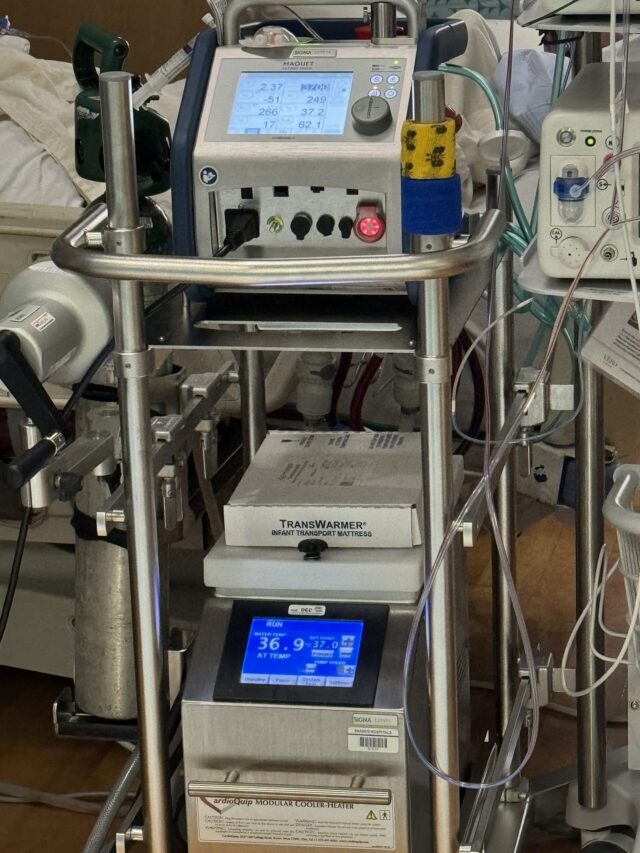UF Health’s new ECPR program saves its first heart attack patient

Frank Lowman is as hardworking as they come.
Even after suffering a heart attack that led to cardiac arrest, Lowman focused on one thing that was extremely important to him once he returned home from the hospital – he wanted to go back to work.
“I feel good. I don’t have any problems with anything,” said Lowman, an excavator operator from Williston, Florida, who turned 63 on Christmas. “I feel that I’m ready.”
Lowman has another personal distinction. He is the first UF Health patient to meet the criteria to receive extracorporeal cardiopulmonary resuscitation, or ECPR, for out-of-hospital cardiac arrest. ECPR is a type of CPR that uses an extracorporeal membrane oxygenation machine, known as ECMO, to deliver oxygen-rich blood throughout the body. As a result, Lowman not only survived cardiac arrest, he also had no lingering neurological or physical damage.
“This is a very successful outcome for a patient who otherwise would have had a 100% chance of death,” said Torben Becker, M.D., Ph.D., an associate professor in the department of emergency medicine in the UF College of Medicine and executive director of emergency medicine for the UF Health Critical Care Organization.
In March 2023, the prehospital ECPR program went online at UF Health, making UF Health Shands Hospital the only facility in North Central Florida to offer the advanced resuscitation technique.
“This program gives patients who would have traditionally died the chance to survive,” Becker said. “Each link in the chain of survival was critical to achieve this patient outcome.”
Late in November 2023, Lowman suffered a heart attack that caused his heart to stop. Having been CPR-certified for more than a decade, Lowman’s 26-year-old daughter, Kayla Watson, started CPR while Williston Fire Rescue responded to the 911 call. Between Watson, Williston Fire Rescue and Levy County EMS, rescuers did CPR on Lowman for more than 45 minutes before he arrived unconscious at the UF Health emergency room. The physicians and nurses of the emergency room recognized the dire situation and quickly moved to mobilize the ECPR team.
Evaluating the patient, Becker and the emergency room team noticed signs of life – specifically that their patient moved his arm during CPR and his pupils were reactive to light. Therefore, Marc Maybauer, M.D., Ph.D., a professor in the department of anesthesiology in the UF College of Medicine, and Becker proceeded to place Lowman on ECPR therapy.
“I was considered dead when I came in,” Lowman said. “The machine did a world of good. It saved me.”
Whenever a patient is connected to ECMO, the machine takes over to help the heart and lungs function. Two days later, Lowman underwent a two-vessel coronary artery bypass graft surgery while on ECMO. Eric Jeng, M.D., performed the cardiac surgery for the patient. After more than 100 hours on the ECMO machine, Lowman’s condition was reassessed, and the machine was disconnected.
“ECPR is still limited to Centers of Excellence across the country,” Becker said. “This case is a great example of how it takes a true system of care to provide lifesaving intervention.”
As Lowman’s condition improved in the UF Health cardiac surgery intensive care unit, many nurses visited him. They were thrilled to see how well he had recovered.
“One nurse came up and hugged me. She said, ‘I have never hugged a dead man before,’” recalled Lowman, who flatlined several times before ECPR began. “I guess these nurses have never met a Lowman, because we are fighters.”
Lowman returned to work on Feb. 20. He can do all his job tasks, just like before his cardiac arrest.
“We are really grateful to UF Health,” Watson said. “Everyone did everything in their power.”
Do you know CPR and want to help save lives? Download the PulsePoint app at https://www.pulsepoint.org/ and receive notifications about medical emergencies happening near you.
About the author

